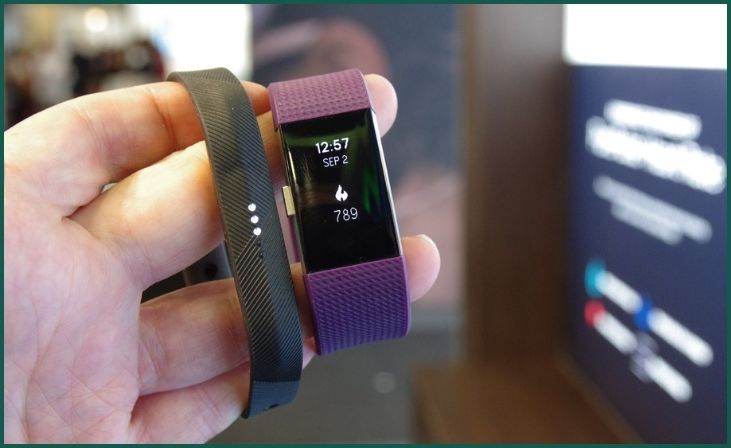Welcome to our comprehensive guide highlighting eight essential features of fitness trackers that can significantly enhance your health and wellness journey. In today’s fast-paced world, prioritizing physical activity and monitoring key health metrics has never been more important. Fitness trackers offer a convenient and effective way to track your daily activity levels, monitor your heart rate, and analyze sleep patterns, among other functionalities. Whether you’re a fitness enthusiast looking to optimize your workouts or someone seeking to improve their overall health, these features can provide valuable insights and motivation to stay active and make healthier choices.
Join us as we explore how fitness tracker technology has evolved to empower users with actionable data and personalized feedback, ultimately leading to improved health outcomes and a greater sense of well-being. Discover how incorporating these features into your daily routine can transform your approach to fitness and help you achieve your health goals more effectively than ever before.
Table of Contents
ToggleFitness Tracker Features
1. Activity Tracking for Daily Movement

One of the fundamental features of fitness trackers is activity tracking, which monitors your daily movement and helps you stay accountable to your fitness goals. These trackers utilize built-in accelerometers to measure steps taken, distance traveled, and calories burned throughout the day. By keeping track of your activity levels, you can gain insights into your overall physical activity and identify opportunities to increase movement and reduce sedentary behavior. Whether you’re aiming for a specific step count or trying to meet daily activity recommendations, activity tracking provides valuable feedback to help you stay on track and make healthier lifestyle choices.
Read Also: 7 Great Lakes Must-Visit Destinations & Roadside Attractions
2. Heart Rate Monitoring for Exercise Intensity

Heart rate monitoring is another essential feature of fitness trackers that enhances your health by providing insights into exercise intensity and cardiovascular fitness. Many modern trackers feature optical heart rate sensors that continuously monitor your heart rate during exercise and rest. By tracking your heart rate zones, you can optimize your workouts, ensuring that you’re exercising at the appropriate intensity to achieve your fitness goals. Whether you’re aiming to improve aerobic endurance, burn fat, or maximize calorie expenditure, heart rate monitoring helps you tailor your workouts for maximum effectiveness and efficiency.
3. Sleep Tracking for Optimal Rest

Quality sleep is essential for overall health and well-being, and fitness trackers offer sleep tracking features to help you understand and improve your sleep patterns. These trackers analyze your movement and heart rate variability during sleep to determine sleep stages and provide insights into sleep quality. By monitoring factors such as total sleep duration, sleep efficiency, and time spent in each sleep stage, you can identify opportunities to optimize your sleep habits and improve restorative sleep. Utilizing sleep tracking data allows you to make adjustments to your bedtime routine, sleep environment, and lifestyle habits to promote better sleep and enhance overall health.
4. Stress Tracking for Mental Wellness

In addition to physical activity and sleep, mental wellness is a crucial aspect of overall health, and fitness trackers now offer stress tracking features to help you manage stress levels and promote emotional well-being. These trackers use heart rate variability analysis to assess your body’s response to stress and provide feedback on your stress levels throughout the day. By recognizing patterns and triggers for stress, you can develop strategies to cope more effectively and prioritize activities that promote relaxation and stress reduction. Incorporating stress tracking into your wellness routine empowers you to take proactive steps towards better mental health and resilience in the face of life’s challenges.
Don't just scroll, subscribe!
BuzzTrail's unique web-stories are the cure for boredom you've been waiting for.
5. Calorie Tracking and Food Logging for Nutritional Awareness

Many fitness trackers offer calorie tracking and food logging features that help you maintain nutritional awareness and support your health and fitness goals. These features allow you to log your daily food intake, track macronutrients, and monitor calorie expenditure to ensure a balanced diet and manage weight effectively. By recording your meals and snacks, you can gain insights into your eating habits, identify areas for improvement, and make healthier choices to fuel your body optimally. Calorie tracking and food logging empower you to take control of your nutrition and make informed decisions that align with your health and fitness objectives.
6. GPS Tracking for Outdoor Activities

For outdoor enthusiasts, GPS tracking is a valuable feature offered by many fitness trackers that enhances the accuracy and versatility of activity monitoring. GPS-enabled trackers use satellite signals to track your location and record route data during outdoor activities such as running, cycling, and hiking. By mapping your routes and analyzing performance metrics such as pace, distance, and elevation, you can gain valuable insights into your outdoor adventures and track progress over time. GPS tracking also allows you to explore new routes, set location-based goals, and share your achievements with friends and fellow enthusiasts, fostering a sense of community and motivation to stay active outdoors.
7. Water Resistance for Swimming and Water Activities

For individuals who enjoy swimming and water-based activities, water resistance is a key feature of fitness trackers that enables you to track your workouts in the pool or open water. Water-resistant trackers are designed to withstand exposure to moisture and provide accurate tracking of swimming metrics such as lap count, stroke type, and duration. Whether you’re training for a triathlon or simply seeking to incorporate swimming into your fitness routine, water-resistant trackers allow you to monitor your aquatic workouts with confidence and precision. With the ability to track both land and water activities, you can enjoy a comprehensive overview of your fitness endeavors and achieve a well-rounded approach to health and wellness.
8. Smart Notifications and Reminders for Lifestyle Integration

To support your health and fitness goals in everyday life, fitness trackers offer smart notifications and reminders that keep you connected and motivated throughout the day. These features allow you to receive alerts for incoming calls, messages, and app notifications directly on your wrist, enabling you to stay informed and connected without constantly checking your phone. Additionally, customizable reminders encourage you to stay active, drink water, take breaks, and reach other health-related goals, fostering a healthier lifestyle and reinforcing positive habits. With smart notifications and reminders, you can seamlessly integrate health and fitness into your daily routine and stay on track towards achieving your wellness objectives.
Bottom Line
In conclusion, fitness trackers offer a myriad of features that can revolutionize the way you approach your health and fitness journey. From tracking your activity levels and heart rate to analyzing sleep patterns and providing personalized insights, these devices empower you to take control of your well-being like never before. By leveraging the capabilities of modern fitness trackers, you can set achievable goals, monitor your progress in real-time, and make informed decisions to optimize your health and lifestyle.
Whether you’re striving to increase your daily step count, improve your cardiovascular fitness, or enhance your sleep quality, a fitness tracker can serve as your trusted companion every step of the way. Embrace the power of technology to unlock your full potential and embark on a journey towards a healthier, happier you.
FAQs
Can fitness trackers accurately measure heart rate during exercise?
Can fitness trackers accurately measure heart rate during exercise?
Yes, many fitness trackers utilize advanced sensors and algorithms to accurately monitor heart rate during various activities, including exercise. However, it’s essential to ensure proper device placement and wear tightness for optimal accuracy.
How do fitness trackers track sleep patterns?
How do fitness trackers track sleep patterns?
Fitness trackers equipped with sleep tracking features use accelerometers and heart rate monitors to detect movement and heart rate variability throughout the night. This data is then analyzed to determine sleep stages and provide insights into sleep quality.
